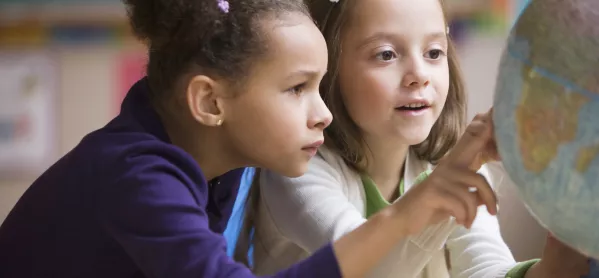- Home
- Analysis
- Specialist Sector
- 4 ways to help third culture kids settle in school
4 ways to help third culture kids settle in school

As international schools have grown there has been a significant rise in the number of children termed “third culture kids” (TCKs), too.
TCKs are children who are born and raised in a country different to that of their parents and so are exposed to a mix of cultures from a young age.
While this may sound like a benefit and an example of the international-mindedness that many schools seek to promote, research on TCKs has found some negative aspects.
For example, research in 2018 in the International Journal of School & Educational Psychology found that TCKs are more likely to experience symptoms of depression, loneliness and anxiety than their peers.
This is because, the researchers say, TCKs can often suffer from identity crises, with the question “Where are you from?” potentially becoming a trigger.
In terms of TCKs in international schools, while they might be born and raised in the nation of their school, their home life connects them with the country of their parents. They can grow up, throughout their childhood, never really knowing where they belong.
Meanwhile, another trend in international education - the rise in the number of local children attending these schools - has also been found to cause concern for TCKs, with research from 2020 revealing that it can make them feel more isolated. They can sometimes struggle to make meaningful friendships and connections.
It is clear that schools need to ensure that TCKs in their settings do not suffer from these problems but instead are made to feel welcome and included. So what can you do?
How schools can help third culture kids
1. Know your cohorts
Using a survey or other data collection tool, find out the countries of origin of the parents in your school. This can be eye-opening, as we found in my school recently.
Our data showed that despite us labelling ourselves as “not that international”, 45 per cent of our children had at least one parent born outside of the US.
With nearly half of our students having a connection with a foreign country, it became clear that we needed to change. Furthermore, we now had the data to show how many of our children were TCKs, and where exactly their heritage came from.
When sending out the survey, we were open and honest with parents that our mission was to increase diversity, inclusion and internationalism at our school.
2. Find daily ways to celebrate culture
Letting children celebrate culture does not require big one-off events; there are plenty of learning opportunities every day.
For example, when our early years children are learning to count to 10, we allow them to demonstrate counting to 10 in their native language. Our older children, meanwhile, have the opportunity to discuss their heritage with their peers in assemblies.
We have given children the opportunity to sing songs in their native tongue in assemblies, with Korean, Hindi and Afrikaans some of the languages being sung.
- International schools: Quarter of overseas schools teach “responsible” AI use
- Returning to teach in England: Four tips for success
- Embracing diversity: Seven ways a diverse teacher workforce helps a school
Giving children the chance to not only demonstrate their heritage but also have it celebrated can allow them to explore their identity and find a sense of belonging.
3. Internationalise your curriculum
A typical day at school can involve children’s learning being dominated by white European men. Reading a Roald Dahl book in literacy, learning about Picasso in art or Mozart in music.
For TCKs, this can be alienating. Find ways to incorporate the countries represented by the children in your school so all can feel that their heritage matters.
For example, our library was revamped to include authors from South American, Asian and African countries. Literacy now includes book studies on these authors.
Our art and music lessons have moved away from a Western focus. They are now based on music and art from the nations represented by our students.
4. Mark all celebrations
We recently asked parents whether there were any national celebrations that the school should mark. The feedback was phenomenal, and we now have a whole range of celebrations in the calendar for the students to learn about.
For example, this winter families from the Philippines came to school to present and help the school learn about the parol. We’ve had families bring in paint to celebrate Holi with the children.
Ultimately, it’s about finding ways to ensure that your TCKs feel welcome and avoid some of the issues identified in the research cited above so they feel a sense of belonging in your school - something crucial to success both in school and in later life.
Lewis Warren is a primary teacher and an international school teacher in the US
Keep reading for just £1 per month
You've reached your limit of free articles this month. Subscribe for £1 per month for three months and get:
- Unlimited access to all Tes magazine content
- Exclusive subscriber-only stories
- Award-winning email newsletters
topics in this article



